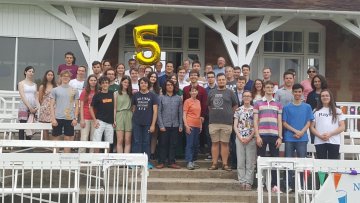14:00
Globally convergent least-squares optimisation methods for variational data assimilation
Abstract
The variational data assimilation (VarDA) problem is usually solved using a method equivalent to Gauss-Newton (GN) to obtain the initial conditions for a numerical weather forecast. However, GN is not globally convergent and if poorly initialised, may diverge such as when a long time window is used in VarDA; a desirable feature that allows the use of more satellite data. To overcome this, we apply two globally convergent GN variants (line search & regularisation) to the long window VarDA problem and show when they locate a more accurate solution versus GN within the time and cost available.
Joint work with Coralia Cartis, Amos S. Lawless, Nancy K. Nichols.


